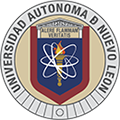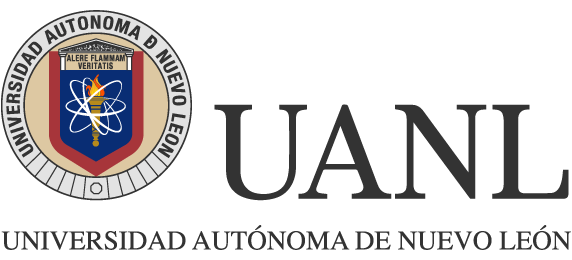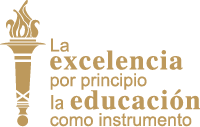Share:
Bachelor of Science in Chemical Engineering
School of Chemistry
School of Chemistry
Admission profile
Candidates seeking admission to the Bachelor’s degree program in Chemical Engineering are expected to demonstrate and possess the following characteristics:
Assessable characteristics
- A solid understanding of mathematics, physics, chemistry, and general cultural knowledge.
- The ability to analyze and apply specific textual and graphical information effectively.
- Proficiency in communicating ideas accurately, both verbally and in writing.
- The capacity to comprehend and interpret logical relationships and patterns based on logical-mathematical reasoning.
- Competence in comprehending informative, argumentative, and narrative texts of moderate complexity.
Desirable aptitudes
- An aptitude for working effectively within a team, fostering a collaborative environment.
- The capability to adapt to changing circumstances and environments with ease.
Admission requirements
Academic
Have successfully completed high school or equivalent studies.
Legal
Meet all criteria established by UANL's current standards and procedures.
Testing
The student is required to take the entrance exam as prescribed by UANL.
Program-specific
Take the psychometric test.
Attend the induction course.
Submit a diagnostic test to assess foreign language proficiency.
Graduation profile
Purpose:
The purpose of this program is to educate professionals in Chemical Engineering who will be responsible for the transformation of matter and energy. These professionals will design chemical, physical, and biological processes while adhering to sustainability criteria and the regulations set forth locally, nationally, and internationally. They will efficiently utilize resources and drive innovation in products and processes by undertaking advanced engineering projects rooted in scientific research and technological trends.
Additionally, they will formulate control strategies for the transformation industry’s processes by evaluating collected data, ensuring their safe and efficient operation. These professionals possess the leadership skills required to lead inter-, multi-, and transdisciplinary teams, and they consistently uphold the core values of UANL, including respect, equity, and integrity.
Ultimately, these professionals aspire to contribute to society’s sustainable development, creating value-added services and products within the local and global transformation and service industry.
General skills
Instrumental competencies
- Apply autonomous learning strategies across various levels and fields of knowledge to make timely and relevant decisions in personal, academic, and professional spheres.
- Utilize logical, formal, mathematical, iconic, verbal, and non-verbal languages suitable for their stage of life. This enables them to understand, interpret, and express ideas, feelings, theories, and prevailing schools of thought with an inclusive approach.
- Manage Information, Communication, Knowledge, and Digital Learning Technologies (TICCAD) effectively in academic, personal, and professional environments, employing cutting-edge techniques to foster constructive and collaborative participation in society.
- Master their mother tongue both orally and in writing, adhering to correctness, relevance, timeliness, and ethical communication. They should adapt their message to the situation or context for the effective transmission of ideas and scientific findings.
- Apply logical, critical, creative, and proactive thinking to analyze natural and social phenomena. This equips them to make relevant decisions within their sphere of influence, guided by social responsibility.
- Proficiently use a second language, preferably English, to communicate clearly and accurately in everyday, academic, professional, and scientific contexts.
- Develop academic and professional proposals that embrace inter-, multi-, and transdisciplinary approaches, aligning with global best practices to foster and strengthen collaborative work.
- Utilize both traditional and cutting-edge research methods and techniques for academic work, professional endeavors, and knowledge generation.
Personal and Social Interaction Competencies
- Maintain a commitment to respect and appreciate the diversity of social and cultural practices, promoting the principle of integration locally, nationally, and internationally for the advancement of peaceful coexistence.
- Intervene effectively in addressing contemporary societal challenges at both local and global levels. Approach these challenges critically, with a strong commitment to human, academic, and professional values that contribute to overall well-being and sustainable development.
- Practice the values endorsed by UANL, including truth, equity, honesty, freedom, solidarity, respect for life and others, peace, respect for nature, integrity, ethical conduct, and justice. Apply these values consistently in both personal and professional environments to actively contribute to the construction of a sustainable society.
Integrative Competencies
- Construct innovative proposals by comprehensively understanding reality in a holistic manner. These proposals aim to address the challenges presented by the interconnected global environment.
- Assume leadership roles dedicated to addressing both social and professional needs, thereby promoting meaningful social change.
- Effectively resolve personal and social conflicts using specific techniques within the academic and professional realms, facilitating informed decision-making.
- Achieve the adaptability required in the uncertain social and professional landscapes of our time, with the goal of creating improved living conditions.
Specific skills
- Design processes for the chemical industry while adhering to the principles of the conservation of matter and energy, physicochemical and transport phenomena, and considering cultural, global, and sustainability criteria. This aims to generate value-added solutions in both the productive and service sectors.
- Develop innovative projects for industrial process operation by leveraging technical knowledge, economic engineering tools, and expertise in management and quality systems. The goal is to ensure continuous improvement by efficiently utilizing economic, human, technological, energy, and material resources within the transformation and service industry.
- Evaluate engineering systems through rigorous experimentation, data analysis, and interpretation to inform decision-making. This approach seeks to maximize environmental, social, and economic benefits within the transformation and service industry.
- Ensure the reliable operation of industrial processes, accounting for varying operating conditions, and employing fundamentals of process control, risk analysis, and process analysis and synthesis. This ensures both safety and efficiency, aligning with environmental and quality standards while meeting organizational production objectives and goals.
Labor market
| Area | Jobs |
| Chemical Industry sectors
· Chemical and petrochemical synthesis and transformation industries. · Leather, textile, and plastics processing industries. · Beverage, processed and packaged food and beverage bottling and packaging industries. · Providers of construction and/or assembly services for industrial equipment and plants. · Technical service providers (consulting, quality control, maintenance, etc.). |
1. Design processes to obtain value-added products.
2. Operate industrial processes efficiently, ensuring resource optimization. 3. Control processes to maintain operating parameters. 4. Simulate processes to analyze the impact of potential changes and compare design alternatives. 5. Assure the quality of processes and products. 6. Propose strategies for minimizing environmental impact. 7. Provide technical support on chemical engineering-related issues. 8. Manage product sales and acquisition, as well as technical services. 9. Efficiently manage energy, material, economic, technological, and human resources. 10. Conduct research and development projects. 11. Implement industrial safety and hygiene strategies. 12. Evaluate risks associated with industrial processes. 13. Ensure compliance with environmental and energy legislation. |
| Industrial companies
Governmental or Non-Governmental Organizations
. Higher Education Institutions Researchs and development centers |
|
Graduation requirements
Academic
Have completed the 230 total credits of the academic program.
Have carried out the mandatory learning service.
Legal
Meet all criteria established by UANL’s current standards and procedures.
Program-specific
Comply with the Seminar for professional performance.
Submit the bachelor's degree graduation exam.
Provide proof of participation in activities for comprehensive training.
Show evidence of having developed or strengthened competence in a foreign language.
Accreditations
National
Name
Accreditors that belong to the Council for the Accreditation of Higher Education (COPAES)
Accreditor
Consejo de Acreditación de la Enseñanza de la Ingeniería, A.C.
Accreditor's acronym
CACEI
http://cacei.org.mx/Validity of accreditation
December 2025
International
Name
Accreditation Board of Engineering and Technology
Accreditor
Accreditation Board of Engineering and Technology, Estados Unidos
Accreditor's acronym
ABET
http://www.abet.org/Validity of accreditation
September 2023
Location
Fecha de aprobación del H. Consejo Universitario
24 de marzo de 2022Posted by: Dirección del Sistema de Estudios de Licenciatura




